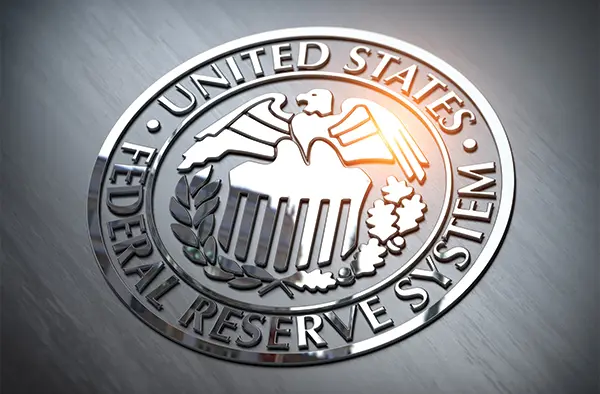How New Cryptocurrency Regulations Are Impacting Retail Investors in the U.S.

February 28, 2025
The U.S. government has been actively addressing the growing concerns over the cryptocurrency market, which has seen explosive growth in recent years. New regulations are now coming into play, and retail investors are at the center of these changes. These new rules aim to ensure that the cryptocurrency market operates within a legal framework that safeguards investors, prevents fraud, and addresses concerns over money laundering and other illicit activities. However, these regulations also pose challenges for retail investors who are navigating the evolving landscape of digital currencies.
Key Changes in Cryptocurrency RegulationsThe new regulations that have been implemented or are in the process of being finalized are designed to create a more secure and transparent environment for cryptocurrency investors. Here’s a breakdown of the key regulations affecting retail investors:
Registration and Compliance Requirements for Cryptocurrency Exchanges: One of the most significant changes is the registration and compliance requirements for cryptocurrency exchanges. Exchanges like Coinbase, Binance, and others will now be required to adhere to stricter reporting and compliance standards.
Tax Reporting and Documentation: The Internal Revenue Service (IRS) has ramped up efforts to ensure that cryptocurrency transactions are properly documented for tax purposes. New regulations mandate that cryptocurrency exchanges provide detailed transaction data, including gains and losses, to both the IRS and their customers.
Anti-Money Laundering (AML) and Know-Your-Customer (KYC) Requirements: To combat illicit activities such as money laundering and fraud, cryptocurrency exchanges are now subject to more stringent AML and KYC regulations. These regulations require exchanges to verify the identities of their users and monitor transactions for signs of suspicious activities.
Stablecoins and Cryptocurrency Custody Rules: Stablecoins, which are cryptocurrencies pegged to traditional assets such as the U.S. dollar, have drawn attention from regulators due to their potential to destabilize financial markets if not properly regulated. The new rules mandate that issuers of stablecoins must meet certain reserve requirements and provide regular audits.
Regulation of Initial Coin Offerings (ICOs) and Token Offerings: Initial Coin Offerings (ICOs) and other token offerings have become a popular way for companies to raise capital in the cryptocurrency space. However, these offerings have been controversial, with many investors facing significant losses due to fraudulent or poorly managed ICOs. The new regulations require that companies conducting ICOs meet the same standards as traditional securities offerings, including providing disclosures and investor protections.
The new regulations aim to provide more transparency and security for retail investors. For example, exchanges will have to provide more detailed reports, which means that investors can better track their holdings and monitor their investments. The KYC and AML regulations should also reduce the likelihood of fraud, ensuring that investors are dealing with legitimate platforms.
2. Greater Compliance and OversightWith more oversight from regulators such as the SEC, investors can feel more confident that exchanges and projects will adhere to higher standards. This is crucial as the cryptocurrency space has seen its fair share of fraudulent schemes and scams.
3. Increased Costs and Complexity for InvestorsWhile the regulations are beneficial for ensuring the security and transparency of the market, they also add complexity. Retail investors will now need to be more proactive in tracking their transactions, managing their tax liabilities, and ensuring they comply with regulatory requirements. The process of signing up for exchanges and completing KYC verification may become more cumbersome, and investors might face higher fees as exchanges adjust to the new rules.
4. Access to Investment OpportunitiesFor some retail investors, the tightening of regulations may limit their access to certain investment opportunities. ICOs and token offerings, which were once a popular method for early-stage investments, are now subject to more stringent rules. While this could reduce the risk of fraudulent schemes, it may also limit the potential for high returns that come with investing in new projects before they are fully regulated.
Adapting to the New Regulatory EnvironmentAs cryptocurrency regulations evolve, retail investors must adapt their strategies to navigate the changing landscape. Here are some tips for staying compliant and making informed investment decisions:
Stay Informed About Regulatory Changes: The cryptocurrency regulatory environment is still evolving. Retail investors should stay informed about the latest updates to ensure that they understand the impact of new regulations on their investments.
Use Reputable Exchanges: It’s crucial to use exchanges that comply with the new regulations. Look for exchanges that provide transparency in their operations and have robust security measures in place.
Keep Accurate Records: With tax reporting becoming more stringent, retail investors must maintain accurate records of their transactions. Utilizing portfolio tracking tools and working with a tax professional who understands cryptocurrency can help investors stay compliant.
Be Mindful of Risks: Despite increased regulatory oversight, the cryptocurrency market remains volatile. Retail investors should approach the market with caution, diversify their portfolios, and be prepared for the inherent risks that come with cryptocurrency investments.

The role of U.S. investment policies in ensuring financial security and market resilience
U.S. investment policies play a crucial role in shaping financial stability by influencing capital markets, interest rates, and economic growth. Regulatory frameworks and government interventions determine risk levels, investor confidence, and long-term economic sustainability

Understanding the impact of interest rate changes on investment decision-making
Interest rate changes have a significant influence on investment strategies. Whether through the stock market, bonds, or real estate, shifts in rates affect asset prices, investor behavior, and portfolio diversification. Understanding these dynamics is essential for making informed, profitable investment decisions

Understanding how inflation trends influence U.S. investment strategies
Inflation trends play a critical role in shaping U.S. investment policies. From adjusting interest rates to influencing asset classes like bonds, equities, and real estate, inflation trends affect economic decisions across the country. Investors must stay informed about inflation to navigate investment policies effectively and protect their portfolios

Exploring the impact of government spending on market trends and investor behavior
Government spending plays a pivotal role in shaping investment markets. From fiscal stimulus packages to infrastructure investments, the allocation of government funds can drive market movements and influence investor sentiment. This article delves into the ways government spending impacts various sectors and markets, offering insights for investors

An in-depth look at the changes to capital gains tax laws and what investors should expect in 2025
As 2025 approaches, changes in capital gains tax laws could impact investment strategies for individuals and institutions. This article explores the key updates to tax policies and offers insights into how these changes may affect your investment portfolio

Understanding how Federal Reserve decisions impact investment trends and economic stability
The Federal Reserve plays a crucial role in shaping investment growth by adjusting interest rates, regulating money supply, and influencing market liquidity. Its policies determine the cost of borrowing, stock market trends, and overall economic expansion, making it a key driver in investment decision-making

An exploration of the impact of U.S. economic policies on investment strategies and trends
With shifting U.S. economic policies, investors are adjusting their strategies to respond to new market dynamics. This article explores the key policy changes and their influence on investment decisions

Understanding how tax policies shape investment strategies and financial growth
Tax regulations play a crucial role in determining investment returns by affecting capital gains, dividends, and corporate profits. Changes in tax laws influence investor behavior, asset allocation, and long-term financial planning, making it essential to stay informed about evolving policies

Learn how U.S. monetary policies influence investment decisions and market trends
U.S. monetary policies, driven by the Federal Reserve, play a significant role in shaping investment opportunities. Understanding interest rates, inflation control, and liquidity measures helps investors make informed decisions and optimize portfolio returns in varying economic climates
The Atlantic Daily
Get our guide to the day’s biggest news and ideas, delivered to your inbox every weekday and Sunday mornings. See more newsletters
.webp)
Ideas That Matter
Subscribe and support more than 160 years of independent journalism.
Subscribe